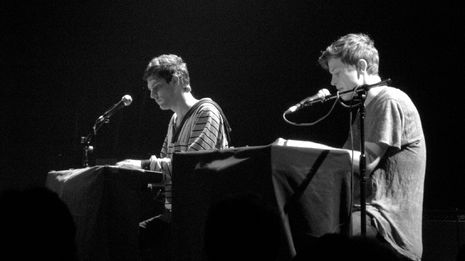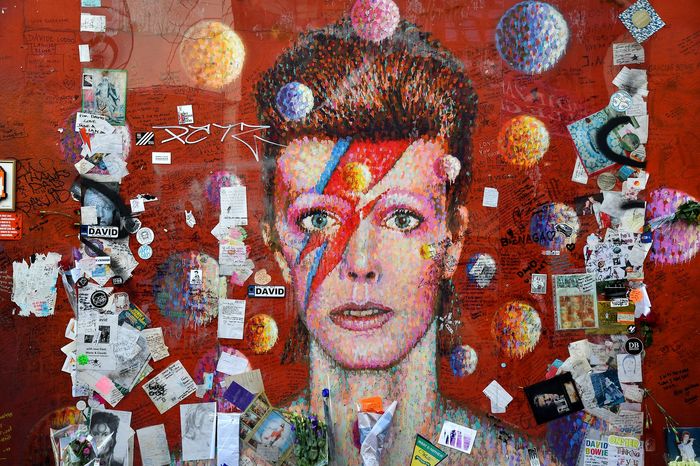Hell sounds really, really hot: Ugly Season review
Liam Macmillan reviews Perfume Genius’s latest album, Ugly Season

Throughout a series of five albums, Mike Hadreas’s Perfume Genius has illuminated the 2010s with bold, queer artistry, exploring realms of experimentalism and pop to underscore his poetry on sexuality, illness, physicality and spirituality. His fifth album, Set My Heart on Fire Immediately, drew wide critical acclaim and earned him a spot amongst the top fifty albums of all time on Metacritic. His sixth album, Ugly Season, is the next logical step forward for Hadreas, as it side-steps away from the melodrama of queer romance explored in his last album to scrutinise the darker edges of love and sexuality. The album sways between sirens and lullabies; it feels as though he conducted a ritual, cast a spell, pressed record and let the instruments carve out a musical feeling that, however ugly, sounds so gorgeous.
The opener, “Just a Room”, begins just as I thought it would: low, harrowing strings pull us into an eerie orchestral embrace that feels as warm as it does chilling. The lyrics (all five lines of them) are low and muttered, as though whispered into the ear of a lover, heads on comfortably suffocating pillows. It mellows out into a celeste and some harmonic, but quieted, and what sound like improvised, hums. The instrumentation swells again and Hadreas’s breathing sits elevated, breathing life into music that follows. “Harem” feels like an extension of this. It introduces a motif: a descending falsetto that finds Hadreas sounding like a songbird calling across a wild, human forest. It’s a seven-minute feat of rich instrumentation that occasionally stumbles on its length, but falls into a feathery beat that feels like a descendant of Björk’s legendary musical paean to love: Vespertine (essential listening). It’s music made for the movements of the body in all capacities and spaces; the lyrics may be paired down but are no less poetic: “Cosmas, stretched out like a reed, wait and pray”. Purely instrumental tracks like “Teeth” and “Scherzo” almost fade to the back of this unwieldy soundscape, but are nonetheless dramatic, though in more of a delicate sense.
“It’s a love song, but maybe not like one you’ve heard before”
The album finds its high points at its core. “Pop Song” might have grown to be one of my favourite songs of the year so far (watch out “Billions”), picking up a pulsing synth to underscore Hadreas’s signature, melodic falsetto. The generic name juxtaposes the exotic gloss of the song’s poetry: “Harvest the pit, and spit out the rest, to shoulder our pain”. It’s a love song, but maybe not like one you’ve heard before. That vocal motif returns, complimented by a harp and wild, shifting drums. The concept of love and all its baseness is deftly translated into the contrasting vocality of the second verse that sees the euphoric falsetto harmonised with a guttural baritone, pairing the parallels of love and sexuality. These are the sounds of a maturing queer artist sonically stretching their artistic muscles into every corner of musical space possible.
The album’s title track is both a point of highs and some minor lows. Another shuffling beat enters, shifting us into some reggae. This and the artistic choice to keep his voice baritone and slurred begins to make the album feel a little one noted. That being said, the lyrics, if you can make them out through the moans and the pitch, are poetic, filthy and undeniably queer: “Turned from God, slick with rot, thick as vaseline, knee deep and filthy”. Among distorted, groaning ad-libs, Hadreas finds pride in baseness and slips into the album’s longest cut, “Eye in the Wall”. It’s another subtle shapeshifter that carries off almost independently into a speeding stream of drums and synths that’s perhaps for a few minutes too long.
The final trio make for a grandiose close. “Photograph” offers the most haunting and accessible music from the album so far. Lyrically, it’s a love song, but one hidden in poetic complexity and ornate instrumentation with gritty guitars and opening (or closing) doors. It’s almost a prelude to “Hellbent”: the album’s most ambitious and challenging listen. For the majority of its composition, a droning guitar rings out more like feedback than actual music, covering an oscillating bass that carves out a hellish soundscape. The drums, courtesy of Matt Chamberlain, legendary drummer notable for his works in much of Fiona Apple’s discography, take this track into hardcore experimental rock, curating a spontaneously raucous structure. Every element feels like it’s chasing something, maybe it’s behind – we get a call back to “Jason” – or below as those cooing vocals return to pull the song towards the mind expanding experience that is the outro, if you can make it there, of course (I hope you do, it’s insane). “Cenote” is the calm wave goodbye that lies in the crystalline water of a piano accompanied by rising synths that cleanse the body, looking upward and back at the jagged, wild rock above.
“A gorgeous musical portrait of maturing queer sexuality”
Ugly Season, though often a little unwieldy for its own good, is a cohesive body of work made for the capacities and pleasures of the body and the evolution of the mind. Hadreas’s music has always tended to the queer body, but where his previous works felt more transcendental, this feels like it gets back to the grit of things. It’s his most experimental offering – a gorgeous musical portrait of maturing queer sexuality. In his own words: “Bitch, it’s ugly season, and I love it”.
 News / Right-wing billionaire Peter Thiel gives ‘antichrist’ lecture in Cambridge6 February 2026
News / Right-wing billionaire Peter Thiel gives ‘antichrist’ lecture in Cambridge6 February 2026 News / Cambridge students uncover possible execution pit9 February 2026
News / Cambridge students uncover possible execution pit9 February 2026 Features / From fresher to finalist: how have you evolved at Cambridge?10 February 2026
Features / From fresher to finalist: how have you evolved at Cambridge?10 February 2026 News / Epstein contacted Cambridge academics about research funding6 February 2026
News / Epstein contacted Cambridge academics about research funding6 February 2026 News / Churchill plans for new Archives Centre building10 February 2026
News / Churchill plans for new Archives Centre building10 February 2026








